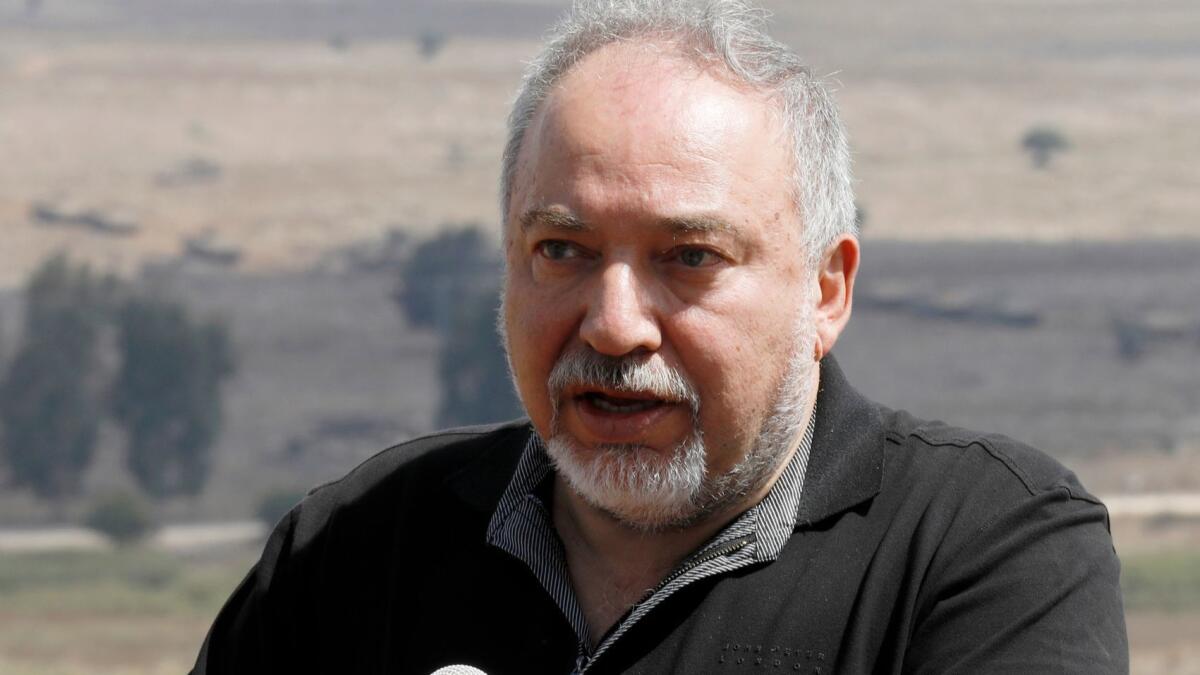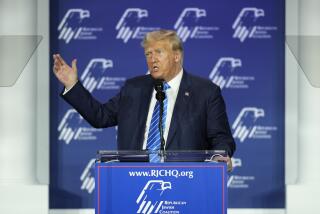Mueller document leads to Israeli whodunit over anti-Semitism

A single paragraph in lengthy legal papers filed by special counsel Robert S. Mueller in the case of President Trump’s former campaign chairman, Paul Manafort, has provoked a political whodunit in Jerusalem, where a statement that Manafort “coordinated privately with a senior Israeli government official” to tarnish a Ukrainian opposition leader as an anti-Semite has had a bombshell effect.
The legal document, released Friday, states that in October 2012, Manafort schemed with the unnamed official to issue a public statement that would spur “Obama Jews” to turn against Yulia Tymoshenko, a pro-European Union former prime minister of Ukraine and rival to Manafort’s client, then-President Viktor Yanukovych.
Tymoshenko, who enjoyed wide support among Western liberals, was to be personally discredited as an anti-Semite following an electoral agreement that her Fatherland party signed with the Freedom movement, a right-wing nationalistic group with anti-Jewish origins.
“With secret advance knowledge of that Israeli statement,” the indictment states, Manafort “worked to disseminate this story in the United States.”
Who, Israelis are asking, is the senior Israeli government official, and what did he get for it?
Most suspicions are focused on one man: Israeli Defense Minister Avigdor Lieberman, who served as foreign minister in 2012 and, as the Jerusalem Post reports, “seems to be implicated in the affair.”
Questions surround a Russian-language press statement released by the Israeli foreign ministry on Oct. 27, 2012.
“Israel is concerned about the recently signed agreement between the Fatherland party and the extremist Freedom ‘Svoboda’ party, whose anti-Semitic aggression has repeatedly caused consternation both in Ukraine and in Israel,” the Cyrillic text read.
“These views remind us of the darkest pages of the history of the last century, which led humanity to the unrivaled catastrophe of World War II. Israel severely condemns all expressions of anti-Semitism and expresses the hope that common sense will prevail.”
“It’s beyond strange,” said Danny Ayalon, a former Israeli ambassador to the United States who served as deputy foreign minister in 2012, and flatly denies being Manafort’s unidentified partner.
Israeli government press releases are not usually published in Russian, Ayalon noted, and the timing of the statement’s publication, one day before Ukrainian parliamentary elections, made it “almost inconceivable.”
In addition, he expressed doubt that “any declaration on a subject as delicate as anti-Semitism in the middle of an election in an important nation” could have been released without his having been informed the move was under consideration.
Days later, on Oct. 31, the Israeli foreign ministry posted, in English, a statement reading, “Israel expresses concern at the growing strength of extremist anti-Semitic elements in Ukraine and at the election to the Ukrainian parliament of the Svoboda (Freedom) party, whose members have often voiced racist and anti-Semitic positions. Israel expects the Ukrainian government to take a strong stand against any manifestation of racism or anti-Semitism.”
A retired senior diplomat who requested his name not be associated with the affair, confirmed to The Times that “the Russian language release was not drafted, handled or sent out by the ministry’s spokesperson, as press releases usually are. Only the English version was.”
Lieberman, a native speaker of Russian, has not denied authoring the first statement, which was attributed to him in several contemporaneous publications.
Instead, on Sunday, his bureau issued a statement defending the press release as “a correct and timely condemnation of an anti-Semitic party that repeatedly spread its satanic doctrine” and denied he ever met or spoke with Manafort.
“All the rest is science fiction for conspiracy theorists,” the statement said.
There is a growing clamor for an investigation, with former opposition legislator Zehava Galon writing a letter to Atty. Gen. Avichai Mandelblit laying out her suspicion that a crime may have been committed.
The unnamed official may have “received personal benefits or promoted personal interests in Ukraine and Russia,” she wrote, or “at the very least, abused his position in order to advance Manafort’s interests.”
Her concerns stem from the contradiction between Israel’s general policy of ignoring anti-Semitic trends in Ukraine in 2012, whereas “Lieberman published an official statement in October 2012 that accords with the indictment’s description.”
Ayalon, the former deputy minister, said Mueller’s indictment reveals “a senior Israeli official operating as a foreign agent.”
“In a best-case scenario,” he says, the official “may have done it for money. In the worst case, we are dealing with a mole. It comes close to treason.”
“We can’t ignore the possibility that Israel’s security interests were jeopardized by someone working on behalf of a foreign power,” Ayalon said.
Tarnopolsky is a special correspondent.
More to Read
Start your day right
Sign up for Essential California for news, features and recommendations from the L.A. Times and beyond in your inbox six days a week.
You may occasionally receive promotional content from the Los Angeles Times.






